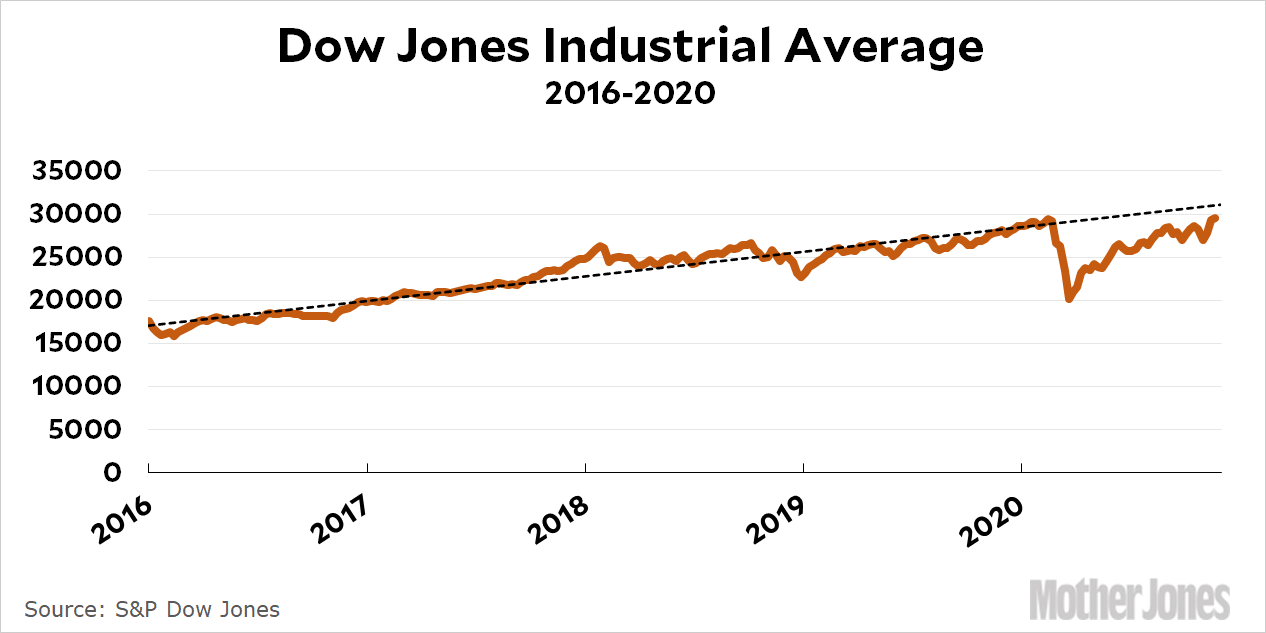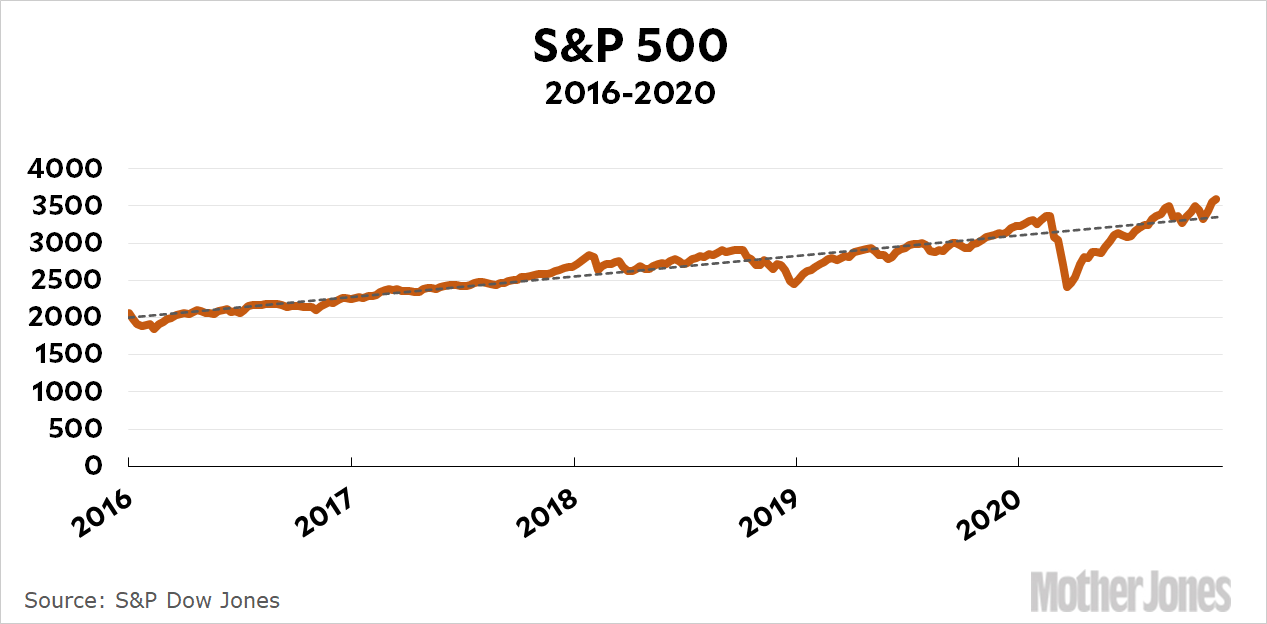You might be as weary of this stuff as I am, but here is the Dow Jones Industrial Average over the past five years:

Basically nothing new has happened recently even if, technically, the Dow set yet another “record” today. If you draw a trendline through the end of 2019 and then extend it (dashed black line), the Dow is well below the trendline. Right now it’s still growing more slowly than it did during the 2016-2019 period.
But let’s be fair! Donald Trump may think the Dow topping 30,000 is “sacred,” but the truth is that nobody with a room temperature IQ follows it. The most basic guide to the stock market is the S&P 500, so let’s take a look at that:

Things look a little better now, but still nothing new has happened. The S&P is growing at the same rate as always. There are small ups and downs, as always, and during the past four weeks there’s been a small upward spike, but this is pretty meaningless. It tells us (maybe) that investors think the underlying economy will return to its old self once the pandemic is over, but that’s about it.
It’s worth noting that there’s a genuine difficulty with economic data of all kinds right now: it’s almost all artificial because the state of the economy is dictated less by fundamentals and more by deliberate government lockdowns in response to the coronavirus. This means that the stock market, for example, doesn’t really tell us what investors think about the underlying strength of the economy. Rather, it tells us what investors think about how quickly the pandemic will be over and things will get back to normal. (They’re fairly optimistic about this.)
In the same vein, things like high unemployment numbers don’t tell us much either on a macro economic level. After all, we’ve deliberately put millions of people out of work, so of course the unemployment level is high. In a normal situation, high unemployment means the economy is in bad shape and needs general stimulus. In the situation we face today, it means only that the pandemic is still roaring along. This calls for targeted, temporary aid to the unemployed, especially for working-class folks who have been the hardest hit.
In any case, the stock market has never been a very good guide to the strength of the economy. Today, it’s even less helpful. The bottom line is that you should ignore stock market news unless it shows some kind of sustained change from its five-year trend. So far it hasn’t.

















